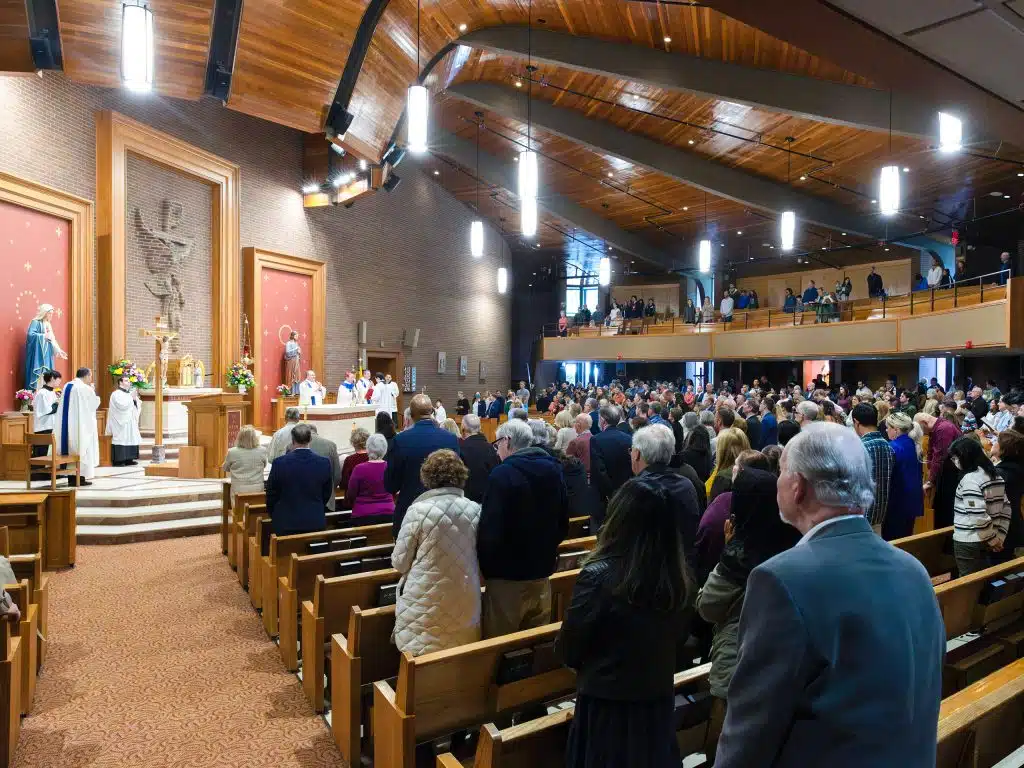The church’s liturgical year ends with the solemnity of Christ the King, Nov. 22 this year. Now, we might think this feast is a remnant from the ancient or medieval church, from a time when kings ruled the world. In fact, it was established by Pius XI in 1925, just as kings were disappearing from the world. But it was not their disappearance that prompted the pope to institute the feast. Rather, it was that the pope wanted to proclaim Christ as King in the face of society’s increasing secularization and hostility to the faith.
Of course, devotion to Christ as King was not something new. The roots of this devotion are deep in Scripture and in the church’s tradition. The Israelites awaited the Messiah (Christ) who would be the son of David, the great king. The psalms often speak of the Lord of Israel as king. In Psalm 2, we hear how God has established his king, to whom he says, “You are my son, today I have begotten you” (Ps 2:7). Thus, this king is also God’s son. All these prophecies pointed to the coming of Jesus Christ.
In Our Lord’s day, the people of Israel expected the Messiah King. Unfortunately, they looked for a worldly, political ruler, who would restore the earthly kingdom of Israel. When our Lord appeared, therefore, he made great effort to correct this understanding of the Messiah King. For example, after the multiplication of bread and fish, when the crowds came to make him king, he evaded them and withdrew to the mountains to pray. He did not want them to think of his kingship in earthly terms.
He is a new kind of king, who does not have an earthly treasury, land or army. He rides into Jerusalem not on a horse of war but on a donkey, a humble symbol of peace. Before Pontius Pilate he states, “My kingship is not from the world.” Even more cryptically for the Roman ruler, Christ binds his kingship not to power but to truth: “You say that I am a king. For this I was born, and for this I have come into the world, to bear witness to the truth. Everyone who is of the truth hears my voice.”
Ultimately, his kingship is proclaimed and established by his sacrifice on the cross. The good thief knew that the cross was in reality the king’s throne: “Jesus, remember me when you come into your kingdom.”
Thus the kingship of Christ is first and fundamentally an interior, personal reality. It is not established by external force but by interior grace. The danger, however, is to confine his kingship to the interior and personal. This would be a distortion, first, of our faith, which can never remain purely interior or personal. It must be lived in the world and openly. We are rightly suspicious of those who claim to be Catholic personally but refuse to bring that faith into their public lives.
More importantly, the relegation of Christ’s kingship to our private life violates the prerogatives and rights of the king. This brings us back to Pius XI’s intention. In the face of secularization, the pope wrote to vindicate the rights of Christ the King. We speak a lot about the rights of man –- what is due to each of us in society. But we speak little about the rights of Christ the King –- what is due to him in society. The pope instituted this feast precisely to remind us of Christ’s right to public acknowledgement and worship in society. The rights of man will never be secured if the rights of Christ the King are not acknowledged.
His rights mean in turn that his disciples have the right to proclaim him and to live his Gospel, not just behind closed doors but publicly and in the public square. The denial of that witness violates our religious freedom and, even more gravely, opposes Christ the King.
It is no coincidence that the same pope who instituted this feast also canonized those great examples of religious freedom, Bishop John Fisher and Sir Thomas More. By their deaths, they witnessed to the rights of Christ the King –- and to the limits of King Henry.
And perhaps it was Pius XI’s words that inspired Blessed Miguel Pro. Arrested by the atheistic Mexican government under trumped up charges of treason, Pro was executed by a firing squad Nov. 23, 1927. An instant before the soldiers fired, he extended his arms in cruciform and cried out, “Viva Cristo Rey” – Long Live Christ the King. We might not experience the same martyrdom as Pro. But we should possess the same courage in publicly proclaiming Christ as King. Viva Cristo Rey.
Fr. Scalia is episcopal vicar for clergy.


